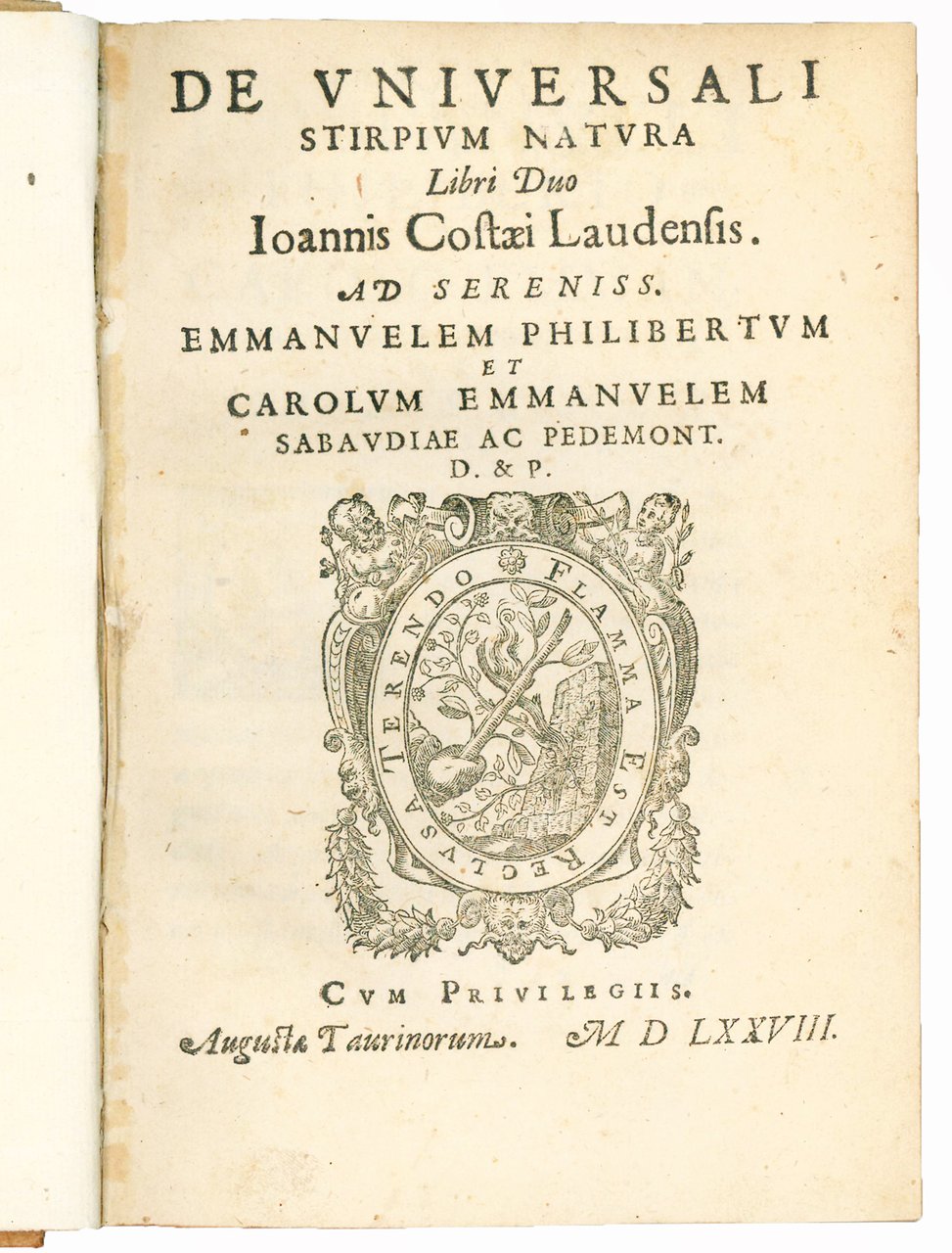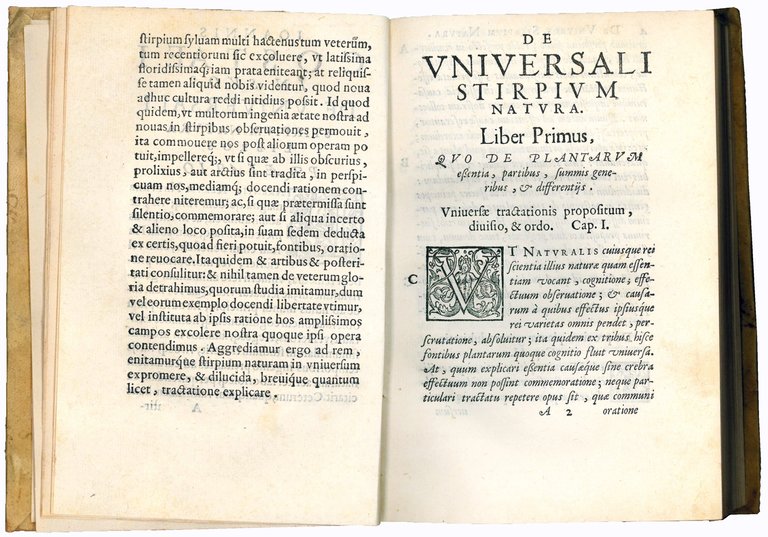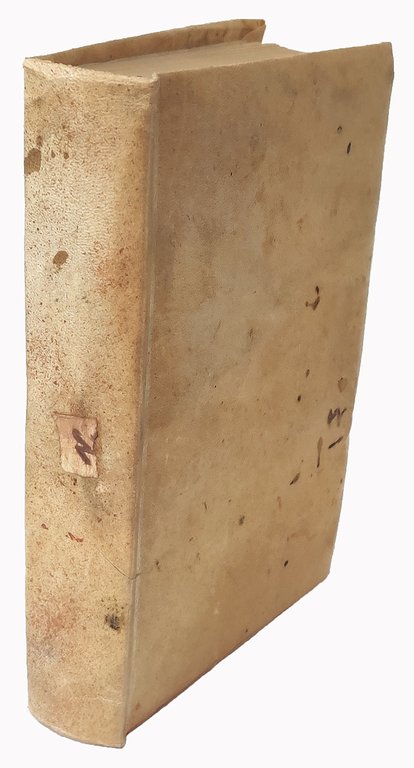De universali stirpium natura libri duo Ioannis Costaei Laudensis
De universali stirpium natura libri duo Ioannis Costaei Laudensis
Mode de Paiement
- PayPal
- Carte bancaire
- Virement bancaire
- Pubblica amministrazione
- Carta del Docente
Détails
- Année
- 1578
- Lieu d'édition
- Torino
- Auteur
- COSTEO, Giovanni (1528-1603)
- Éditeurs
- apud haeredes Nicolai Bevilaquae (heirs of Niccolò Bevilacqua)
- Thème
- Quattro-Cinquecento
- Etat de conservation
- En bonne condition
- Langues
- Italien
- Reliure
- Couverture rigide
- Condition
- Ancien
Description
4to (200x135 mm). [8], 496, [16] pp. Collation: *4 A-SSS4. Printer's device on title page. Roman and italic types. Woodcut historiated initials. Register, errata and colophon on l. SSS4r. Later stiff vellum. Some occasional light foxing and browning, a very good copy.
First edition of Costeo's most significant work, De universali stirpium natura libri duo, a large volume dedicated to Emanuele Filiberto and Carlo Emanuele of Savoy. It is divided into two books that follow the same order. The first, composed of fifty-three chapters, deals with the essence, the parts and the differences of plants, through an external analysis. The distinguishing criteria are in fact smells, tastes, colours, variations in texture, differences in fibre, wood, leaves, and the diseases that affect plants. He then distinguishes the main and secondary parts of the plants, the differences due to soil, nutrition, germination, generation, and also refers to the relationships of plants to each other or to certain animals. This is preceded by a long exposition on the soul of plants, based on the authority of Theophrastus and Plato, but above all Aristotle. The second book, consisting of sixty-three chapters, attempts to identify the causes of the different nature of plant lineages in spontaneous or non-spontaneous, manifest or hidden generation, in the nature of the soil, in seasonal events, and in growth. Costeo's clear model here was the work of Theophrastus, of which he intended to revise the botanical lexicon.
Costeo was born in Lodi in 1528 into a noble family from Casalborgone (Turin). Nothing is known of his youth or his studies. The first news about him dates from 1565, when he published a Tractatus de venarum meseraicarum usu in Venice. In 1570, he was called by Duke Emanuele Filiberto to teach ordinary theoretical medicine at the University of Turin, where he remained for a decade, also in the role of personal physician to the duke, who suffered from liver and kidney disease. In 1580, when the duke died, Costeo accepted the generous offer of Ippolito Aldobrandini, the future Pope Clement VIII, and moved to the University of Bologna to teach ordinary practical medicine (from 1593 ordinary theoretical medicine), until 1598. During this period Costeo corresponded with Justus Lipsius and Ulisse Aldrovandi, who had previously given the Bolognese Senate his approval for Costeo's appointment. His passion for botany led him to travel frequently to Venice and Padua in search of plants and seeds, which he often sent to Aldrovandi. He died in 1603 in Bologna. Costeo left many successful works, not particularly original, but useful as general manuals and reference works. He also wrote several commentaries on the Arab physicians Avicenna and Mesue, which were instrumental in the appreciation of Arab contributions to medicine and science (A. De Ferrari, Costeo, Giovanni, in: “Dizionario Biografico degli Italiani”, vol. 30, 1984, s.v.).
Edit 16, CNCE13637; Hunt, 131; Pritzel, 1921.



